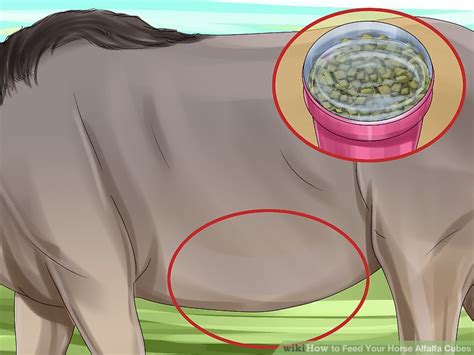Don't Overfeed! Alfalfa and Your Horse's Digestion
Alfalfa, a nutritional powerhouse for horses, is often lauded for its high protein and calcium content. However, this nutritional richness is a double-edged sword. Overfeeding alfalfa can lead to significant digestive issues and compromise your horse's overall health. Understanding alfalfa's impact on your horse's digestive system is crucial for responsible horse ownership. This article explores the benefits and risks of feeding alfalfa, focusing on the importance of moderation and providing practical advice for responsible feeding.
Why Alfalfa is Popular (and Powerful)
Alfalfa's popularity stems from its impressive nutritional profile. It's a legume rich in:
- Protein: Essential for muscle growth, repair, and overall health.
- Calcium: Crucial for strong bones and teeth.
- Vitamins: Including Vitamins A, D, E, and K.
- Minerals: Such as potassium, magnesium, and phosphorus.
These nutrients make alfalfa a valuable supplement, particularly for growing horses, pregnant mares, and those recovering from illness or injury. However, its high nutrient density also presents potential problems if not managed carefully.
The Dangers of Overfeeding Alfalfa
The very qualities that make alfalfa beneficial can become detrimental when overfed. Excessive alfalfa intake can lead to:
-
Founder (Laminitis): This painful condition affects the laminae—the sensitive tissues connecting the hoof wall to the coffin bone. The high sugar and starch content in alfalfa, especially when it's lush and green, can contribute to founder, particularly if combined with other high-carbohydrate feeds.
-
Colic: Overfeeding alfalfa can upset the delicate balance of the gut microbiome, leading to colic, a general term for abdominal pain. This can range from mild discomfort to life-threatening emergencies.
-
Weight Gain: The high calorie content of alfalfa can contribute to weight gain, especially in horses that are not actively working. Obesity in horses can lead to a host of health problems, including founder, insulin resistance, and decreased lifespan.
-
Digestive Upset: Sudden changes in the amount of alfalfa fed, or introducing a new type of alfalfa, can disrupt the gut flora, causing diarrhea or other digestive issues.
-
Kidney Problems: The high calcium content in alfalfa, while beneficial in moderation, can strain the kidneys if consumed in excess, especially in horses with pre-existing kidney conditions.
How Much Alfalfa is Too Much?
There's no single answer to this question. The appropriate amount of alfalfa depends on several factors:
-
Horse's age, size, and activity level: A young, growing horse requires more nutrients than an older, less active horse.
-
Overall diet: Alfalfa should be part of a balanced diet, not the sole source of nutrition. Other components, such as hay, grain, and supplements, must be considered.
-
Type of alfalfa: The nutrient content of alfalfa can vary depending on the growing conditions, harvesting method, and processing.
-
Health status: Horses with specific health conditions, such as founder or kidney problems, may need to restrict their alfalfa intake further.
Always consult with a veterinarian or equine nutritionist to determine the appropriate amount of alfalfa for your horse's individual needs. They can help you create a tailored feeding plan that meets your horse's nutritional requirements without compromising its health.
What About Other Types of Hay?
Many horse owners also use other types of hay, such as Timothy or Orchard Grass, as primary sources of fiber. How does alfalfa fit into this?
Alfalfa can be a valuable supplement to other hays, providing additional protein and nutrients. However, it's crucial not to replace the bulk of your horse's diet with alfalfa. The high calorie and nutrient density can lead to the problems outlined above. A mixed hay strategy can provide a balanced nutrient profile, limiting the potential risks of overfeeding alfalfa.
Managing Alfalfa Safely
-
Gradual introduction: Never abruptly change your horse's diet. Introduce alfalfa gradually to allow the digestive system to adapt.
-
Monitor your horse closely: Watch for signs of digestive upset, such as changes in appetite, manure consistency, or behavior.
-
Regular weight checks: Maintain a healthy weight for your horse through regular weigh-ins and adjustments to their diet.
-
Consult a professional: Work with a vet or equine nutritionist to develop a safe and effective feeding plan.
By understanding the benefits and risks of alfalfa and adopting a responsible feeding approach, you can ensure your horse receives the optimal nutrition without jeopardizing its health. Remember, moderation is key when it comes to feeding alfalfa.

